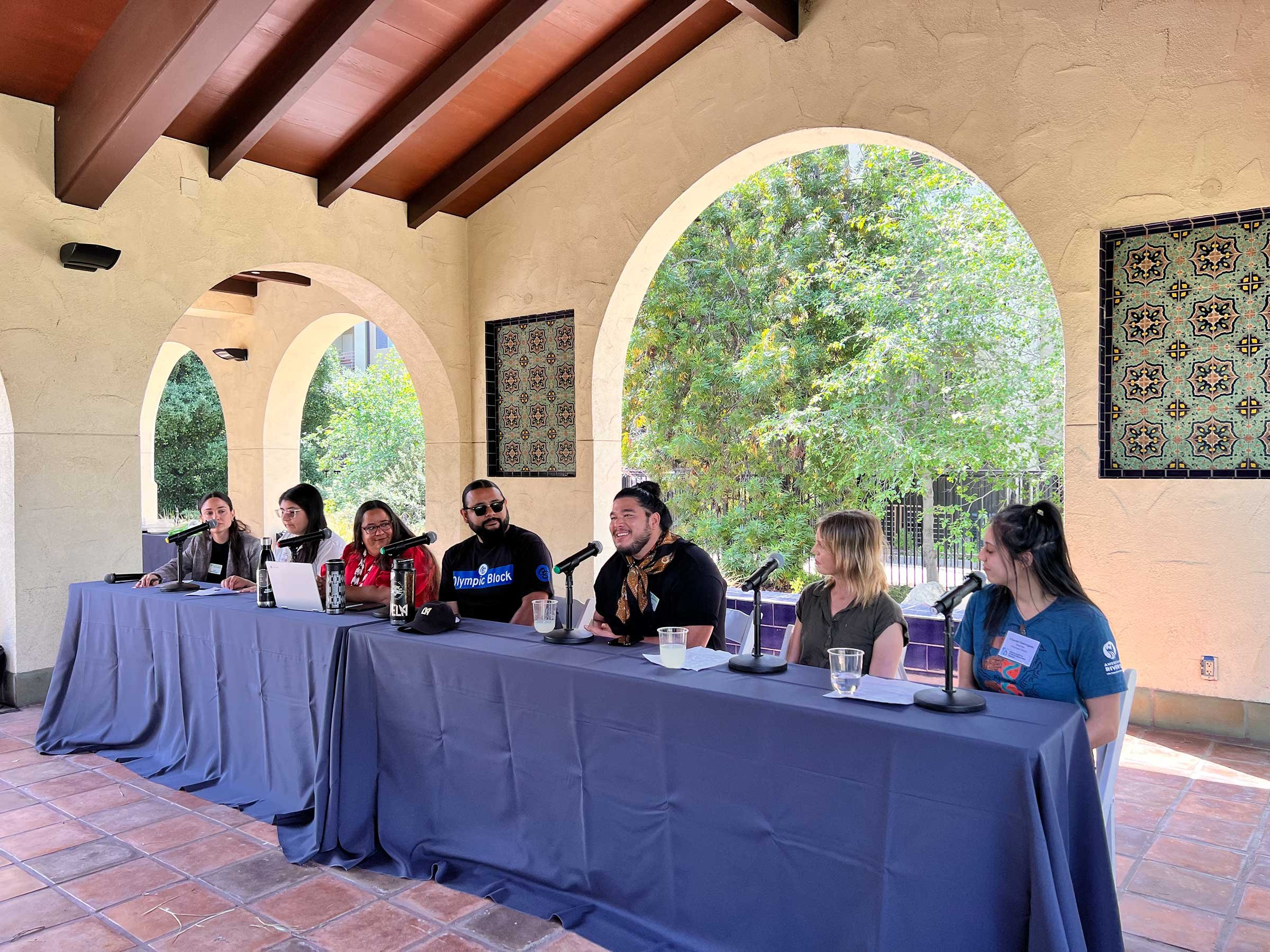Indigenous Waters Program

We work with Native Nations, universities, environmental organizations, institutions, and agencies to protect waters significant to Native Nations and Indigenous Peoples to ensure Tribal voices are involved in all watershed planning.
The goals of this program are to develop Tribal capacity and foster long-term water resource planning that will benefit Tribal communities, including but not limited to: Water Justice Advocacy; Indigenous Water Justice Trainings; Indigenous Leadership Building; and, Highlighting Water Issues through our Indigenous Media Program:
Organized the first Southern California Tribal Water Forum in 2012
Supported a coalition of organizations led by the California Indian Environmental Alliance in amplifying the need for Tribal Traditional and Cultural uses of water and Tribal Subsistence Fishing, resulting in the California Water Board and associated regulatory bodies recognizing uses of water that support the cultural, spiritual, ceremonial, and traditional rights of California Native American Tribes.
Recognition of the Los Angeles River as a Living Entity with Legal Right: In 2020, SPI staff researched, developed, and presented a draft of recommendations centered on Indigenous perspectives for LA Public Works and other County departments regarding the 2020 LA River Master Plan.
Participation in South East LA Water Conversations where BIPOC local organizations that are doing ongoing work around water meet to discuss, reflect and analyze methods to collectively create frameworks to ensure that local Indigenous and BIPOC communities have access to clean and safe water and support advocacy efforts that will protect local waterways.
Participation in the Water Equity & Climate Resilience (WECR) Caucus has allowed SPI organizers to amplify Indigenous perspectives on water during policymaking processes and build alliances with grassroots leaders and stakeholders, including co-hosting the WECR Caucus' in-person national convening in partnership with PolicyLink (2023) , and participating in the Federal Policy Cohort (2024) to strategically navigate and advocate for water rights in Washington D.C.
Created “Allyship with Tribal Communities” educational workshop series, including course curriculum and 10 workshops in the Greater Los Angeles County (GLAC) and Upper Santa Clara River (USCR) regions. These trainings reached nearly 300 people, including representatives from local governments, regional and state water agencies, nonprofit organizations, and academic institutions.
Completed Tribal water needs assessment reports for LA, Ventura, and Orange counties.





